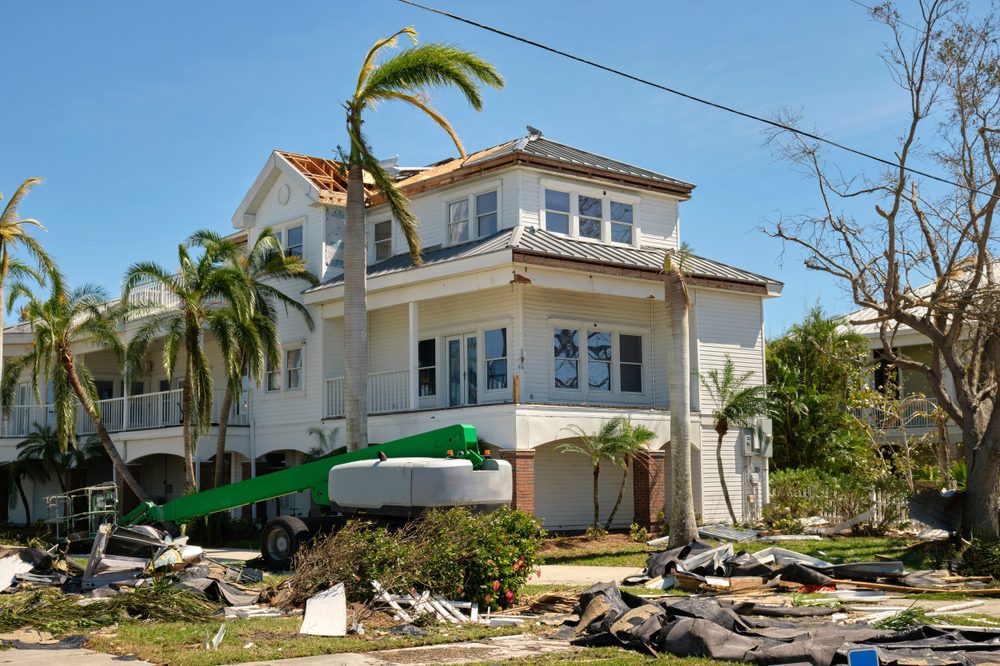
When disaster Hurricane Henri’s rainbands stalled over South County in August 2021, more than 7 inches of water poured into basements from Westerly to Warwick, and adjusters began counting exclusions before the sump pumps even stopped. Rhode Island homeowners who recorded every cracked foundation block, saved receipts for industrial fans, and invoked the state’s fifteen‑day response rule (§ 27‑9.1‑4) saw checks arrive weeks—sometimes months—before their neighbors.
That experience taught a simple lesson: the closer your paperwork mirrors the statute and your policy, the faster funds flow. Below are ten tips to help you move from chaos to compensation after a hurricane, flood, or windstorm with the help of seasoned insurance attorneys in Rhode Island.
1 — Capture the Scene Within 48 Hours
Take high-resolution photos and video of every damaged surface, interior and exterior, before debris removal begins. FEMA inspectors rely on visual proof when validating disaster losses, and insurers may refuse coverage if they cannot see the original condition. Save digital copies to cloud storage and label them with the date and time. Include wide-angle shots of whole rooms plus close-ups of structural cracks, soaked drywall, or burned wiring. Good documentation also supports income-tax deductions and federal disaster-aid applications.
2 — Read Your Declarations Page for Deductibles and Special Limits
Your policy’s declarations page lists the dollar deductible for wind, hurricane, or flood events and any sub-limits for contents, outbuildings, or landscaping. Rhode Island homeowners often discover that hurricane deductibles are a percentage of the dwelling limit, not a flat fee. Knowing these figures early lets you budget repairs and decide whether to open a claim at all. Check for endorsements such as “water backup” or “ordinance and law” that broaden—or exclude—coverage for building-code upgrades.
3 — Notify the Carrier Promptly and in Writing
Most policies require “immediate” notice of loss, and Rhode Island regulations forbid an insurer from denying a claim for late notice only if the delay is unreasonable.Send notice by e-mail and certified mail so delivery is provable; include the date of loss, a brief description of damage, and your preferred contact information. Quick written notice locks in the claim date, starts the statutory investigation clock, and prevents later disputes about when damage occurred—especially important when multiple storms hit in the same season.
4 — Mitigate Further Harm Without Altering Evidence
You have a contractual duty to stop additional damage—board broken windows, tarp the roof, shut off water, and run dehumidifiers. Keep receipts; insurers reimburse “reasonable emergency measures.” Take photos before and after each step so adjusters see the necessity and scope of temporary repairs. Rhode Island’s Unfair Claims rules bar carriers from denying a claim solely because emergency work began before their inspection when protection of the property could not wait.
5 — Track All Extra Living Expenses (ALE)
If your home is uninhabitable, keep every lodging, meal, laundry, and pet-boarding receipt. Most homeowner policies pay ALE until the dwelling is livable or the policy limit is reached. Record pre-disaster household spending to show the insurer which costs are truly “extra.” FEMA grants and IRS casualty-loss deductions also require this documentation, making meticulous record-keeping doubly valuable for financial recovery.
6 — Meet Proof-of-Loss Deadlines
Many homeowner contracts demand a sworn Proof of Loss within 60 days of the event or of the insurer’s request. Missing the deadline can forfeit the claim unless the carrier waives the requirement in writing. Flood policies under the National Flood Insurance Program impose the 60-day limit even without a request. Mark the date on your calendar and send the completed form by certified mail with supporting estimates and inventories.
7 — Hold Insurers to Rhode Island’s 15- and 30-Day Response Rules
Under § 27-9.1-4, an insurer must acknowledge claim correspondence within fifteen days and reach a fair decision within thirty, unless you agree to more time. Track these benchmarks in writing. If deadlines pass, send a polite but firm follow-up citing the statute and requesting an immediate update. Consistent pressure backed by state law often accelerates stalled files and discourages lowball offers.
8 — Remember the Ten-Year Lawsuit Window—But Don’t Wait
Rhode Island gives ten years to sue on a written insurance contract, but many policies shorten the limit to one or two years after the date of loss. Lawsuits filed near the deadline leave little time for settlement talks or discovery, so evaluate legal options as soon as negotiations stall. Prompt action preserves leverage and prevents the carrier from running out the clock.
9 — Leverage Federal and State Disaster Aid
After a presidential disaster declaration, homeowners may qualify for FEMA grants, low-interest SBA loans, and IRS filing extensions or tax relief. Apply through DisasterAssistance.gov within the published registration window, even if you expect full insurance coverage; grants can cover deductibles and temporary housing costs. Retain decision letters because insurers sometimes require proof of aid offsets, and tax professionals need them to calculate casualty-loss deductions accurately.
10 — Use Appraisal or Mediation Clauses Before Suing
Most Rhode Island homeowner policies contain an appraisal clause: when you and the insurer disagree on value, each hires an appraiser who selects an umpire; a majority decision binds both sides. Some policies also offer non-binding mediation funded by the state’s insurance division. These alternatives are faster and cheaper than court, preserve goodwill, and often close the gap between estimates without sacrificing legal rights. Review your conditions page for exact procedures and deadlines.
RI Natural Disaster Property Damage-Get Fair Insurance Payouts
Do not face the insurance company alone. If your property has sustained damage from a natural disaster and you are struggling with your insurance claim, consider consulting with property damage lawyers. PALUMBO LAW offers dedicated legal services for property damage claims throughout Rhode Island, Massachusetts, and Connecticut. Visit our website at or call us to discuss your situation and learn how we can help you achieve the compensation you deserve.
